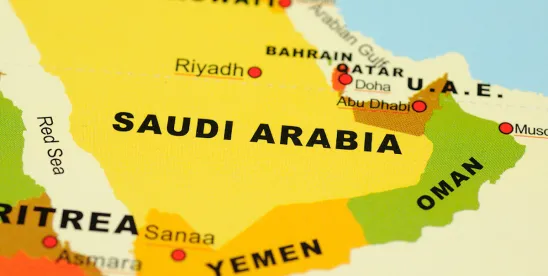On 8 July 2025, the Council of Ministers of Saudi Arabia approved a new and far-reaching law: the Law of Real Estate Ownership and Investment by Non-Saudis. This legislation replaces the 2000 framework and introduces a more progressive and structured regime that enables foreign individuals and entities to own and invest in real estate across designated zones in the Kingdom. The reform aligns with the broader goals of Saudi Vision 2030 and reflects a deliberate policy shift aimed at attracting capital, expanding real estate supply, and elevating urban development standards – while maintaining strong regulatory controls to safeguard national interests.
Structured Access Within Defined Zones
The new law allows foreign investors – both individuals and companies – to acquire real estate in specific areas to be designated by the General Real Estate Authority. These zones will initially focus on high-demand commercial and residential markets, notably in cities such as Riyadh and Jeddah. Foreign ownership within these designated zones, however, remains subject to prior regulatory approval, with various conditions depending on the type and purpose of the project or proposed acquisition.
For commercial real estate investments, foreign entities may acquire full ownership, provided that:
- the investment is development-focused;
- the project meets a minimum capital threshold (currently SAR 30 million); and
- construction of the project is completed and the project is operational within five years from the date that the acquisition occurs.
These provisions aim to ensure that foreign investment actively contributes to urban growth and market liquidity, rather than serving speculative purposes.
Residential Ownership: Controlled Eligibility
Foreign individuals who hold valid residency permits (iqama) may acquire residential property for personal use. However, such acquisitions are subject to Ministry of Interior approval, and residential ownership remains tightly regulated – especially in premium or high-value segments – to prevent speculative inflation, maintain housing affordability, and preserve access for Saudi citizens.
Makkah and Madinah: Cultural and Religious Safeguards
Ownership of real estate in Makkah and Madinah remains highly restricted. Foreigners are generally prohibited from owning property in the two holy cities, with foreign ownership exceptions narrowly permitted to foreigners that are Muslims in very limited cases such as inheritance or recognized religious endowments (waqf). These provisions underscore Saudi Arabia’s ongoing commitment to preserving the religious sanctity and demographic character of its most sacred sites.
Phased Implementation and Regulatory Oversight
The law will enter into force in January 2026, following a transitional period of 180 days during which implementing regulations will be issued by the relevant authorities, including the General Real Estate Authority, the Ministry of Investment and the Ministry of Interior. This phased approach allows for the calibration of regulatory frameworks, licensing systems, and monitoring tools.
Authorities will continuously assess the law’s impact on:
- Real estate prices and supply dynamics;
- Investment volumes and economic diversification; and
- Housing access and affordability for Saudi nationals.
The law explicitly provides for periodic review and adjustment, reflecting a responsive governance model that balances market openness with social and economic safeguards.
Legal and Policy Considerations
The new legal regime introduces a number of operational and strategic questions that will shape implementation and investor participation:
- How will designated investment zones be determined, and what criteria will guide their expansion or limitation?
- What enforcement mechanisms will ensure compliance with project timelines and investment thresholds?
- To what extent will licensing and approval processes be centralized or delegated across various authorities?
- How will foreign ownership be monitored to prevent misuse or market distortions?
These issues will be particularly relevant for all stakeholders in the real estate industry, including developers, fund managers, infrastructure operators, financial institutions and foreign sovereign or institutional investors seeking to navigate the evolving real estate landscape in the Kingdom.
Conclusion
The enactment of Saudi Arabia’s new real estate foreign ownership law represents a pivotal shift in the Kingdom’s real estate, development, and investment landscape. It transitions the country from a historically restrictive regime to a calibrated and strategically liberalized framework – one designed to welcome foreign capital while preserving national values, cultural sensitivities, and market equilibrium.
As the implementing regulations are finalized ahead of the law’s January 2026 effective date, investors, developers, and other market participants will need to navigate a complex regulatory environment. Sophisticated legal counsel will be essential to assess eligibility, structure compliant transactions, and manage cross-border risk.
Ultimately, the law’s success will hinge on the clarity of its execution, the strength of institutional oversight, and the alignment of policy objectives with economic and social imperatives. If these elements are upheld, this reform could become a cornerstone of Saudi Arabia’s broader strategy to position itself as a global hub for investment and sustainable urban development.





 />i
/>i

